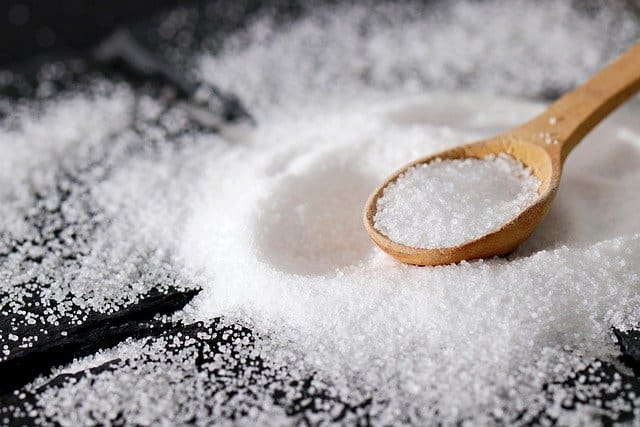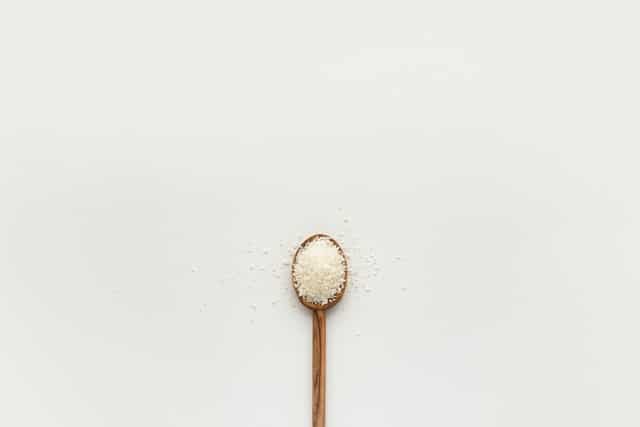
Salt, It has had an enormous impact on the history of humankind and is worth knowing what is related to diabetes. Diabetes is a disease that leads to blood vessel damage and atherosclerosis, increasing the risk of heart disease, heart attack and stroke. Excess salt in our diet has a similar effect. It often leads to hypertension, a disease that also causes cardiovascular problems.
Therefore, diabetics especially need to take care of what they have on their plate. Salt should be avoided like hell. The World Health Organization (WHO) has long faced this problem and recommends that you consume less than 5 g of salt per day. But it’s not just about the products that we.
Contents
Prepare ourselves. Let’s not forget about what we buy. There is far too much salt in processed products from the supermarket and in what they serve in restaurants. Potassium helps to maintain adequate sodium levels in the body of people with diabetes. Its action is to lower blood pressure. Potassium is found in fruits and vegetables and is most abundant in bananas, tomatoes, beans, and oranges.
The Skin - A Reservoir of Salts
The thing is, human skin is unique. As researchers explain - it is a kind of salt reservoir. In other organs, the body maintains a constant concentration of this substance, the excess of which it tries to filter out with the help of the kidneys. Unfortunately, this causes the accumulation of glucocorticoids in the body, which inhibit the work of granulocytes - the most common cells of the immune system.
It is mainly bacteria that they attack showed this in mice with the help of Listeria infections," says Dr. Jobin. - We fed some of them a salt-rich diet. We counted 100 to 1,000 times more pathogens in the spleen and liver of these animals, the researcher adds.
These mice also fought off urinary tract infections worse and how does this happen in humans? When it comes to the humans participating in the experiment who consumed extra salt, the granulocytes took from them also fared worse against bacteria.
Salt not only in the salt shaker
What foods to avoid in a diabetic diet?
Avoiding the consumption of simple sugars (e.g. sweets) - besides protecting teeth from decay - carries several benefits from lowering average blood glucose levels. Eliminating simple sugars in your diet will reduce the risk of organ complications. It will also be easier to control diabetes.
Salt intake should also be reduced - salt in the diet should be limited to 5 g per day. Salt is added in varying amounts to many foods, so it is best to stop using salt to season foods and eliminate foods with particularly high salt content. Simply reducing the number of pinches of salt in your food may not be enough. The problem is several products to which salt is added, not only as a seasoning but also as a preservative.
- Large amounts of salt are found in
- processed meats,
- instant sauces,
- snack foods like chips,
- canned foods,
- yellow cheeses
- white bread
Taking on the challenge of reducing salt intake, therefore, means reading product labels carefully and buying those with the lowest salt content.
Salt and The Immune System

At the end of March, researchers at the University Hospital Bonn reported on a previously unknown risk that comes from salt overuse. First, in their experiments, mice fed salt-rich feed were more likely to suffer from bacterial infections. Conversely, human volunteers who agreed to eat an extra 6 grams of salt a day developed immune system disorders.
The discovery surprised the German researchers. And that’s because some animal studies had shown the opposite. For example, laboratory animals on a salt-rich diet fared better against parasites that attacked the skin. So some have concluded that salt is good for immunity. We consume on average 10-15 g of table salt per day, which equals about 2-3 teaspoons of spice, which is much more than our body needs! Watch out for this, especially if you are at risk of diabetes or already struggling with it.
The insidious work of salt - atrial fibrillation and heart failure excess salt damages the cardiovascular system has long been known - it is a known risk factor for hypertension, and consequently for stroke and heart attack. However, there may be more dangers for the cardiovascular system. Researchers from Finland's University of Oulu reported in late 2018 that salt in the diet may increase the risk of atrial fibrillation - the most common form of arrhythmia.
The condition raises the risk of stroke and can even lead to heart failure.
The study authors followed over 700 middle-aged men and women for an average of 19 years. Salt increased the risk of the condition, even after accounting for hypertension, as well as other factors such as smoking, BMI and age.
This study provides the first evidence that salt in the diet may raise the risk of developing atrial fibrillation. This is another cardiovascular risk associated with salt consumption, says Tero Pääkkö, lead author of the finding. - Although further research is needed to confirm these results, it shows that people with an increased risk of atrial fibrillation will benefit from reducing their salt intake; the expert adds.
In contrast, a team from the Finnish National Institute of Health and Welfare, in a 12-year study involving over 4,000 people, found that high salt intake significantly increases the risk of heart failure, even after accounting for blood pressure, as well as cholesterol levels and body weight.
Salt and Weight Gain
If someone is not convinced by the health arguments, they may want to take care of their appearance, especially if they are at a young age. Teens who eat a lot of salt may gain weight faster, regardless of calorie intake
Researchers at Georgia Regent University report how they have noticed elevated levels of leptin in such individuals. It’s a hormone that normally helps to use up fat and reduces cravings, but with continued action, its effect is reversed. Salt-loving young people also have more chronic inflammation and higher levels of a substance called TNF alpha, which contributes to autoimmune diseases.
“Weight loss is difficult, but hopefully, more people will have weight loss success when they reduce their salt intake,” says Dr Haidong Zhu, author of the study published in the journal Pediatrics. The study admittedly did not conclusively show cause-and-effect relationships, but the researchers advise to be careful with salt.
Many factors contribute to obesity, including physical activity. We believe that high sodium intake may be one of these factors," says Dr Zhu. The results collected so far suggest that, under the influence of salt, fat cells may increase their volume.
Energy Distribution for Meals
Meals should be eaten 4-6 times a day, regularly, preferably at fixed times. It is also important to maintain a consistent amount of carbohydrates at each meal. The recommended daily portions of vegetables, fruit, meat and dairy should be distributed among all meals eaten during the day.
It is advisable to consult a dietician for detailed information about the diet. This is especially advisable for patients treated with insulin, children, the elderly and pregnant women. A dietician should also adjust the diet individually, considering the need for specific foods at different times of the day (e.g. more carbohydrates in the first meals and a predominance of protein in the evening).
Comment

In one of their recent reports published in The Cochrane Library, the authors evaluated 13 studies involving 254 adults with type 1 and type 2 diabetes. They had to significantly reduce their daily salt intake for an average of one week, and the researchers studied the extent to which this affected their blood pressure.
They found that lower salt intake led to a significant reduction in blood pressure. Study participants had to reduce their salt intake to 11.9 g (type 1 diabetes) and 7.3 g (type 2 diabetes), respectively. For patients with both types of diabetes, reducing their salt intake by 8.5 g per day lowered their systolic blood pressure by 7 mmHg and their diastolic blood pressure by 3 mmHg. The researchers noted similar results can be obtained with blood pressure-lowering drugs.
Diabetics should be especially careful about this aspect of their health and keep their blood pressure below 130/80 mmHg. However, according to the American Diabetes Association, in 2003-2004 in the United States, 75 percent of adults with diabetes had blood pressure above these standards.
Too much salt in the daily diet as a cause of higher blood pressure can lead to stroke, heart attack and kidney disease in diabetics. The sources of the highest salt intake are highly processed foods available in supermarkets and chain restaurants.





